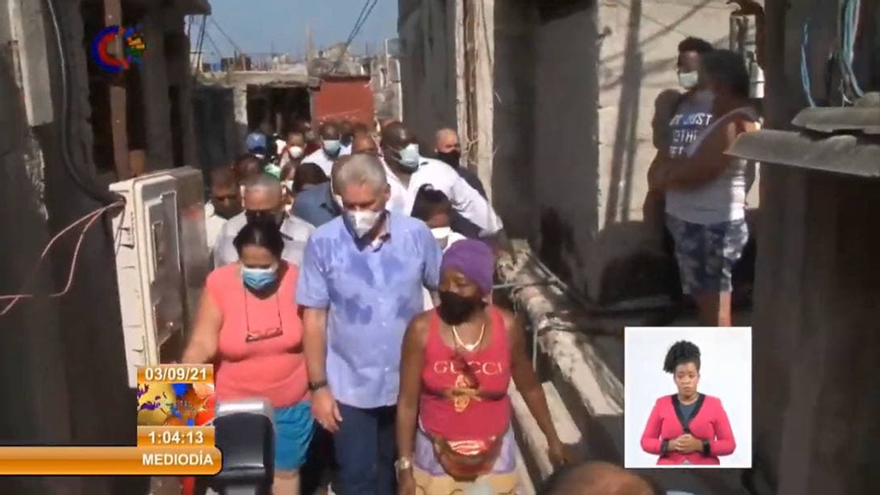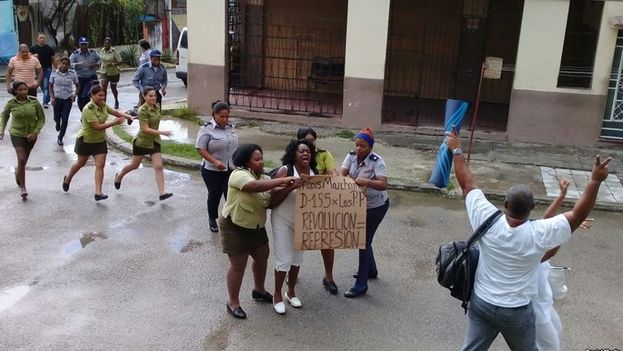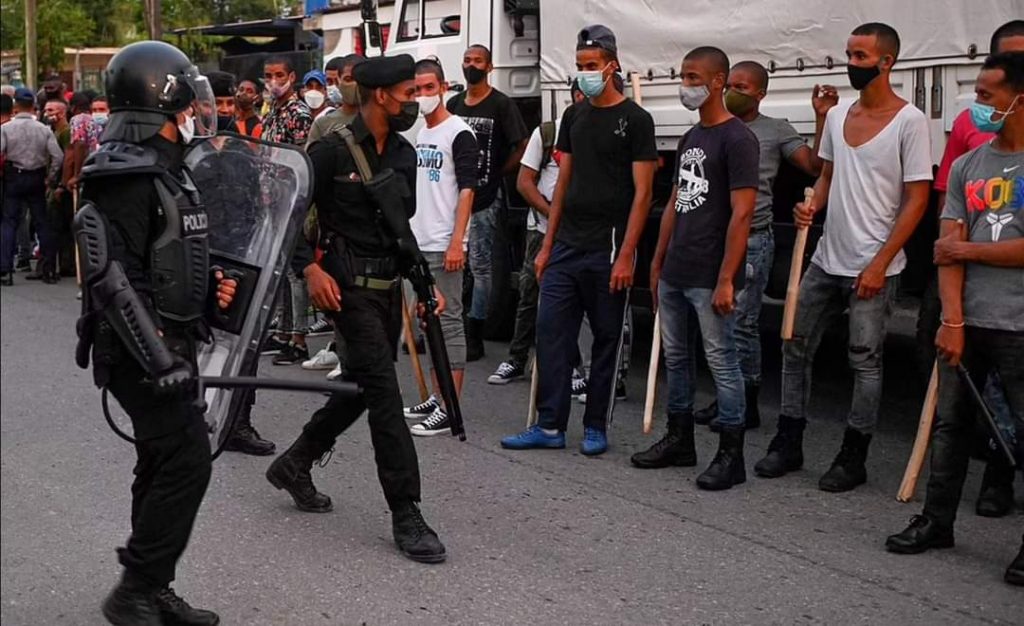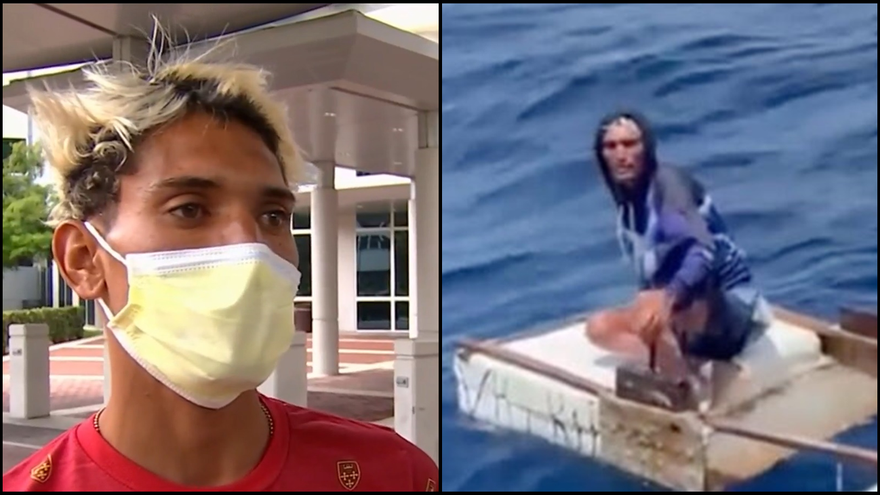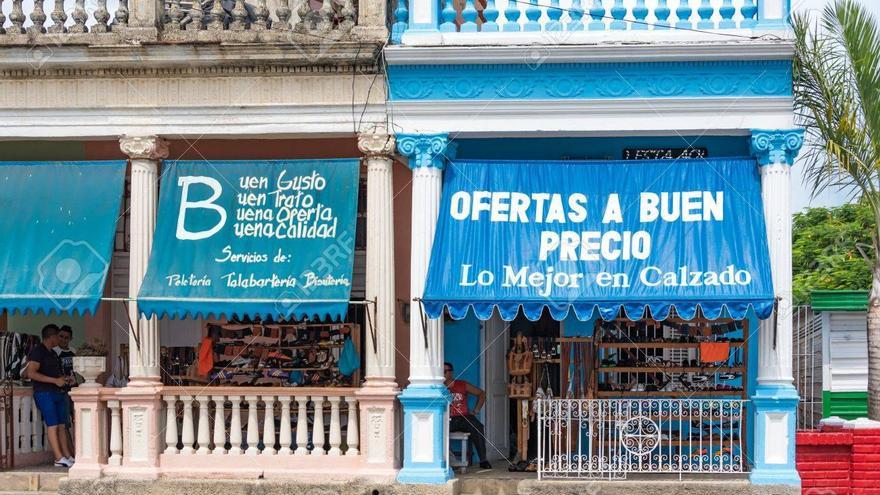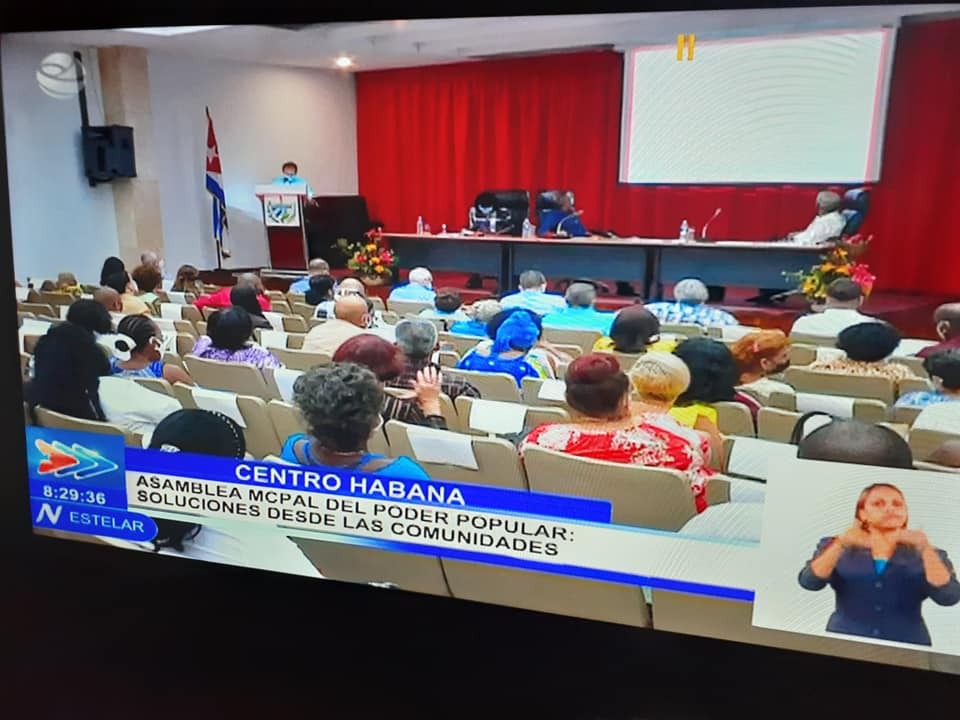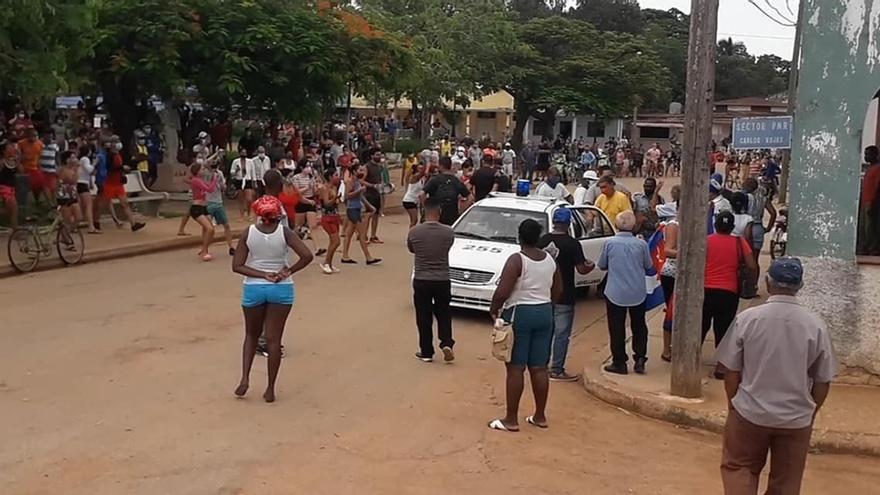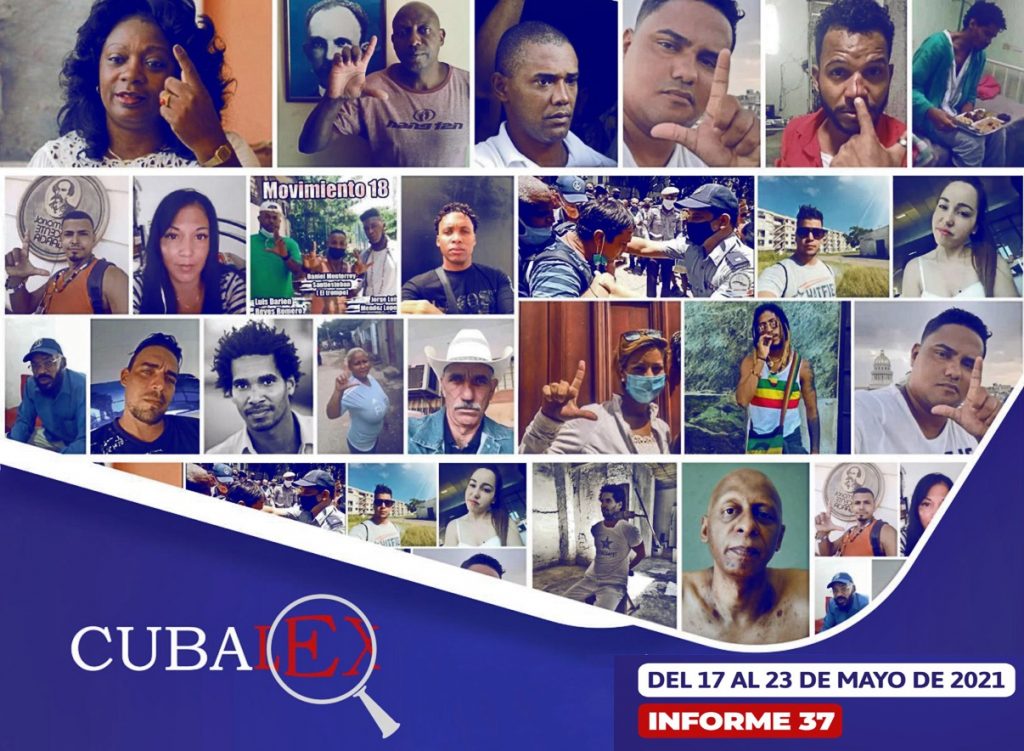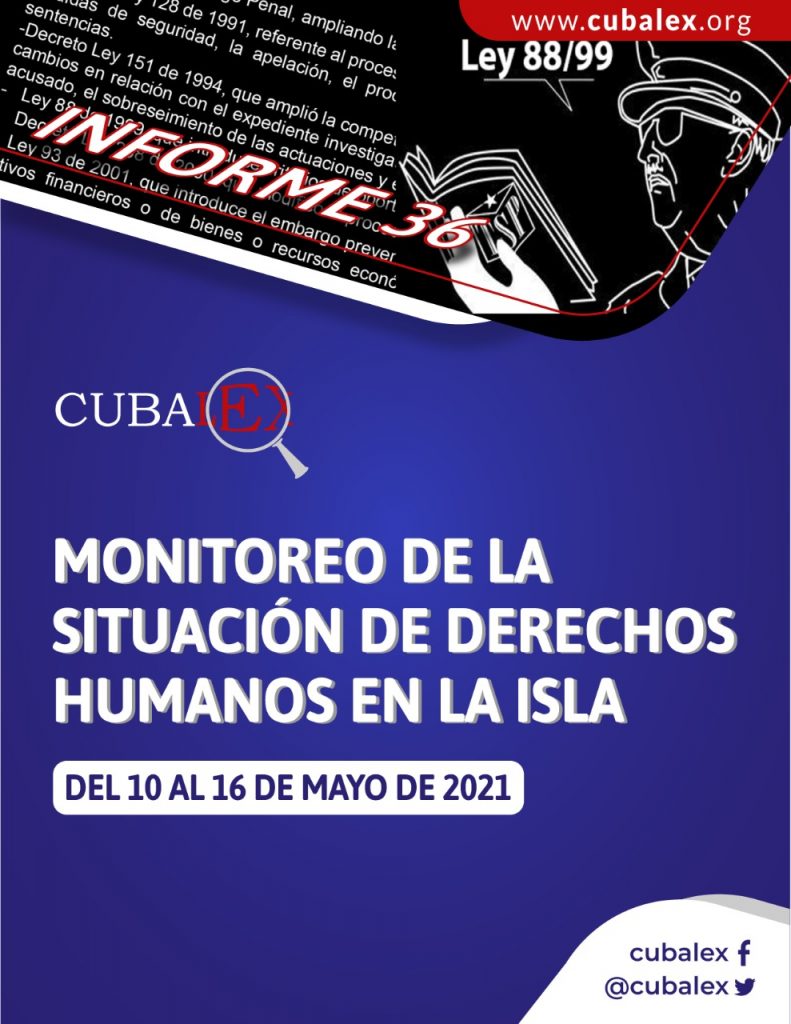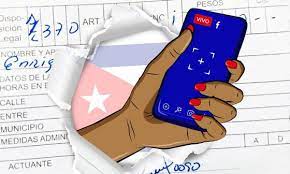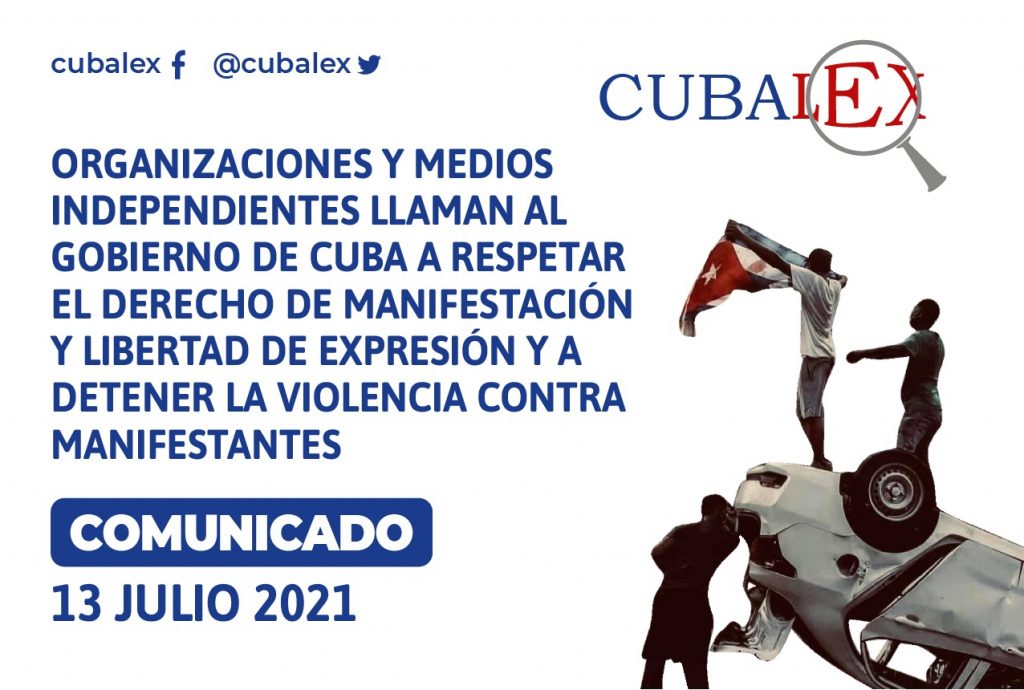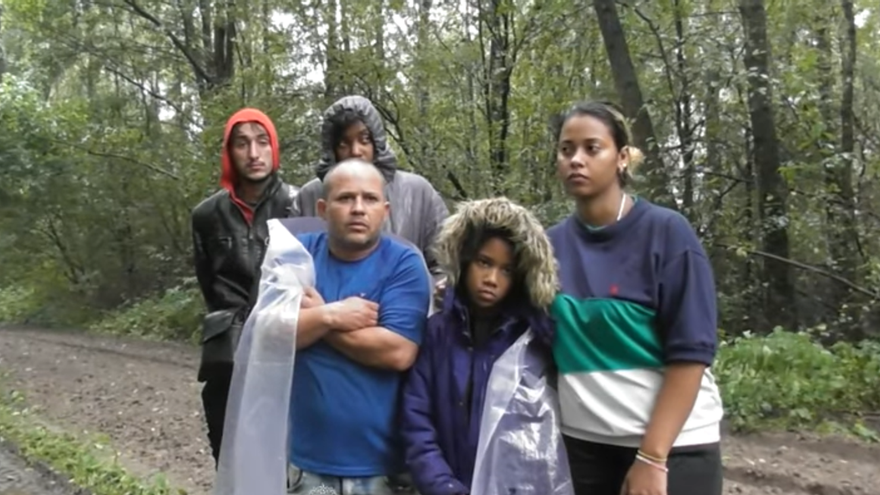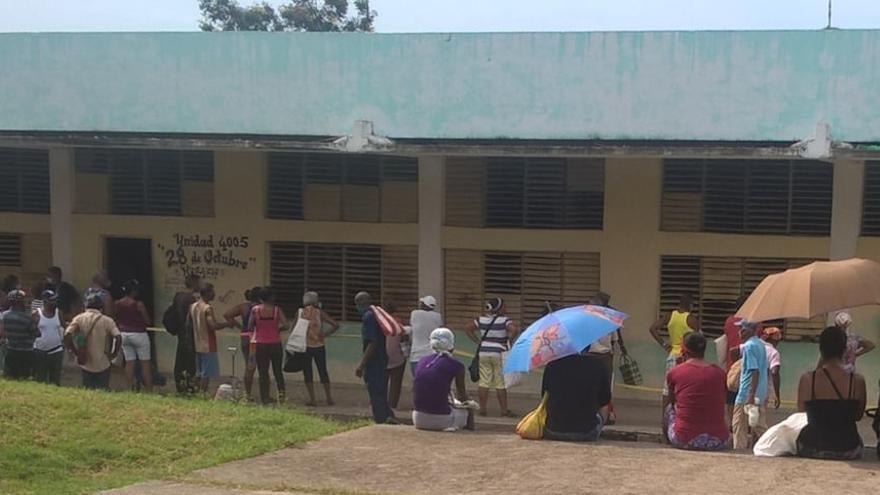
![]() 14ymedio, Alberto Hernández, Santiago de Cuba | 2 Septiembre 2021 — The harsh restrictive measures that came into force last August in Santiago de Cuba to try to contain the contagion of covid-19 have made the purchase of the products of the basic basket an impossible mission.
14ymedio, Alberto Hernández, Santiago de Cuba | 2 Septiembre 2021 — The harsh restrictive measures that came into force last August in Santiago de Cuba to try to contain the contagion of covid-19 have made the purchase of the products of the basic basket an impossible mission.
The new hours of the ration stores (called bodegas), restricted the opening hours for the population to just two (from 7 a.m. to 9 a.m.) and another two hours (from 9 a.m. to 11 a.m.) for the couriers assigned by the Committees for the Defense of the Revolution to make deliveries to people. The hours, planned to be in effect for 15 days but, after this period, the authorities of the province extended it for another fortnight.
“At the beginning of August, when these measures were not yet in place, I managed to buy part of the goods that arrived, incomplete. It has been more than a week since the other part arrived and I have not yet been able to get what I have coming in the store because it’s always full,” Ofelia, a neighbor of the Micro 9 buildings, in the José Martí district, told 14ymedio.
Warehouse 4005 of Micro 9 serves a population of more than 1,600 households (about 6,000 people) and is divided into two teams, with a couple of dependents each. “It is impossible to buy at continue reading
The José Martí district, with more than 129,000 inhabitants, and Abel Santamaría, with 98,000, are, according to 2018 data, the districts with the highest population density in Santiago de Cuba. In them, limiting the hours of sale in the ration stores to the morning have been insufficient and, sometimes, the only way to buy is to skip some rule.
This is how Rita, 67, managed to buy mortadella, thanks to the butchers continuing to deliver after 9 in the morning. “The situation was desperate. I have several health ailments that make me vulnerable and I had to endure more than 5 hours in the crowd, because I arrived at dawn, before the ration store opened.”
Getting up early, however, is not an option for everyone, and neither is going shopping alone. Marina, the mother of two 2- and 5-year-old children, had to choose to take the little ones in order to buy the food they are allocated under the ration system. “I can’t get up early because I don’t have someone to leave my children with, so this month I had to go with them to the tumult and risk infecting all of us with the coronavirus.”
The young woman also wonders what happened to the donation that, according to the provincial press, was going to reach the families. “Some time ago it appeared in the newspaper that they were going to give out a can of tuna, of which came as a donation, but I have been left with the desire, because they have not given me anything.”
Marta is another mother concerned about measures that exclude the specific cases of some families. “On my card there are 14 people. We buy the errands divided into five families and each one collects their own when they can, but when I explained the matter to the courier he refused to provide us with the service.”
One of the missions of the couriers is to help vulnerable people, such as Yoel, a 67-year-old widower who lives alone in an apartment in the Abel Santamaría District and is entitled to this support. However, he says that he does not even know the courier. “I asked the president of my CDR and she could not say clearly, she told me that I should go with the delegate of the area,” he laments.
The restrictions also apply to foreign currency stores. Although its schedule, from 7 am to 1 pm, is somewhat longer, it has not served to solve the crowds either. “I’ve been trying to buy some LED lamp tubes for more than a week and every day is a different situation,” protests Rubén.
“When did go I didn’t manage to get a place in the line, which would have been for two days later, because those of the previous days were cancelled by blackouts and there are only 25 a day.”
Faced with this situation, Rubén decided to show up one day at 5 in the morning, but the line was already full of people. “When I inquired they told me that the first ones came around 9 o’clock the night before, without caring about the curfew. I had to give up on the purchase.”
____________
COLLABORATE WITH OUR WORK: The 14ymedio team is committed to practicing serious journalism that reflects Cuba’s reality in all its depth. Thank you for joining us on this long journey. We invite you to continue supporting us by becoming a member of 14ymedio now. Together we can continue transforming journalism in Cuba.

